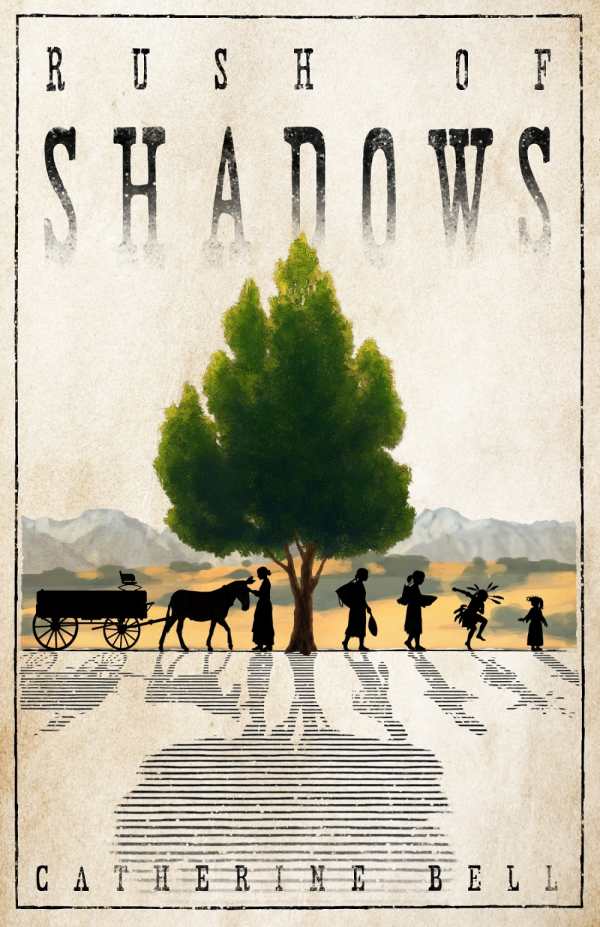Rush of Shadows
Bell examines the ugly clash between civilizations on the American frontier through an artistic, lyrical prism.
With intense characterizations and a solid grasp of time and place, Catherine Bell’s literary historical novel delves into the troubled history of 1850s northern California, casting a clear eye on the white settler’s ugly treatment of Native Americans. Tragic and lyrical, Rush of Shadows focuses on settlers in Oak Valley, north of San Francisco and inland from the coastal mountains.
Law and Mellie Pickett wagon-trek to their homestead and find rich land, brothers Sam and Jakob Brandt, and a peaceful Digger Indian tribe. The settlers face unending hardships, but as their numbers grow, so grows ugly conflict between whites and Native Americans. Bell writes unflinchingly of resentment, and of one-sided violence inflicted on the Indians—who want only food and to be left free to roam—played off against the white settlers’ need to possess, plow, and fence off the ground. As the narrative unwinds over the next decade, Bell mirrors the local conflict against the backdrop of the bloody Civil War.
Mellie Pickett and her contemporary, Bahé, a native woman, are especially strong characters. Daughter of a restless Mississippi doctor who rejected slavery’s corruption and emigrated to Mexico, Mellie and her family later found refuge at a mission settlement near Monterey, California. Mellie’s admirable but eccentric father enters the story first through letters and flashbacks. Later, like a righteous, loving prophet reaffirming the power of empathy and compassion, he visits Mellie after her first two children are lost to diphtheria.
Crying out, “The valley would be desecrated, its spirit wasted like milk poured out on the ground,” Mellie is a voice for humanity as other white settlers demand the Diggers be removed. Bell’s theme recognizes that things precious disappear in the never-ending quest for progress.
Bell’s writing is often lyrical, as when Mellie grows sick and is treated by Bahé, her fever breaking: “Old Woman Mountain, capped with snow. She opened up her top and swallowed me, drenched me with icy water. And then I was a bird flying over the mountain and the valley. I was winter and spring, the mouse in the grass, the acorn on the tree.”
There’s solid historical fiction to be found in this quick-moving narrative, one in which Bell examines, perhaps even attempts to understand, the ugly clash between civilizations on the American frontier through an artistic prism.
Reviewed by
Gary Presley
Disclosure: This article is not an endorsement, but a review. The publisher of this book provided free copies of the book to have their book reviewed by a professional reviewer. No fee was paid by the publisher for this review. Foreword Reviews only recommends books that we love. Foreword Magazine, Inc. is disclosing this in accordance with the Federal Trade Commission’s 16 CFR, Part 255.

